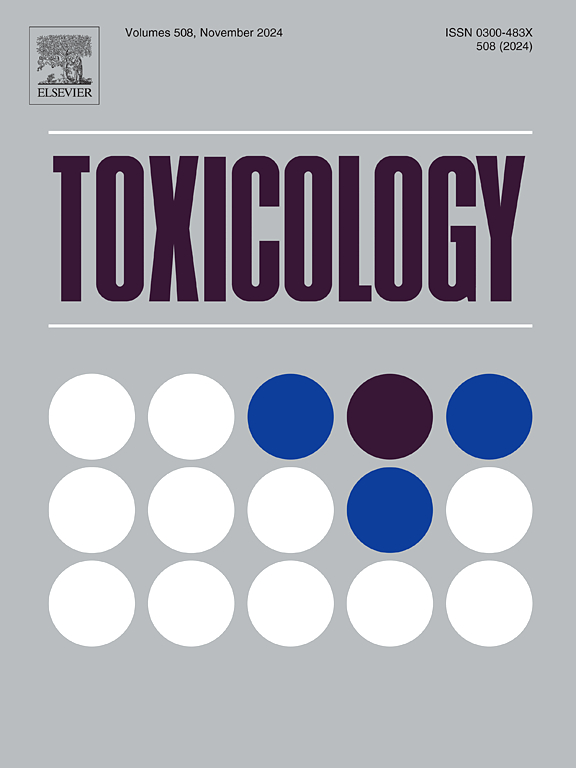Emerging roles of histone modifications in environmental toxicants-induced neurotoxicity
IF 4.8
3区 医学
Q1 PHARMACOLOGY & PHARMACY
引用次数: 0
Abstract
Epigenetics describes itself as heritable modifications in gene function that eventually alter gene and protein expression levels without any alterations in the genome sequence. Epigenetic alterations are closely association with several neurological diseases and neurodevelopmental disorders. In recent years, growing shreds of evidences suggested the crucial role of epigenetic modifications especially histone modifications in environmental toxicants-induced neurotoxicity. This review will give an overview of the state of knowledge on histone alterations and the ways in which environmental pollutants bisphenol-A, heavy metals, pesticides, and phthalates affects post-translational modifications to alter gene transcription and cause neurological abnormalities. We provide a brief summary of the results of recent research on the effects of environmental toxins on each of the prior identified processes of histone modifications, including the neurological consequences and changes in histones. There is also discussion of the limitations of current research findings. Furthermore, this review aims to provide viewers a comprehensive knowledge regarding the role of histone modifications in various environmental toxicants-induced neurological diseases and offers insights for future research.
组蛋白修饰在环境毒物诱导的神经毒性中的新作用
表观遗传学将自身描述为基因功能的可遗传修饰,最终改变基因和蛋白质的表达水平,而不改变基因组序列。表观遗传改变与多种神经系统疾病和神经发育障碍密切相关。近年来,越来越多的证据表明表观遗传修饰,特别是组蛋白修饰在环境毒物诱导的神经毒性中起着至关重要的作用。这篇综述将概述组蛋白改变的知识状态,以及环境污染物双酚a、重金属、农药和邻苯二甲酸盐影响翻译后修饰的方式,从而改变基因转录并导致神经系统异常。我们提供了一个简短的总结,最近的研究结果对环境毒素对每一个先前确定的组蛋白修饰过程的影响,包括神经后果和组蛋白的变化。本文还讨论了当前研究结果的局限性。此外,本综述旨在为读者提供有关组蛋白修饰在各种环境毒物诱导的神经系统疾病中的作用的全面知识,并为未来的研究提供见解。
本文章由计算机程序翻译,如有差异,请以英文原文为准。
求助全文
约1分钟内获得全文
求助全文
来源期刊

Toxicology
医学-毒理学
CiteScore
7.80
自引率
4.40%
发文量
222
审稿时长
23 days
期刊介绍:
Toxicology is an international, peer-reviewed journal that publishes only the highest quality original scientific research and critical reviews describing hypothesis-based investigations into mechanisms of toxicity associated with exposures to xenobiotic chemicals, particularly as it relates to human health. In this respect "mechanisms" is defined on both the macro (e.g. physiological, biological, kinetic, species, sex, etc.) and molecular (genomic, transcriptomic, metabolic, etc.) scale. Emphasis is placed on findings that identify novel hazards and that can be extrapolated to exposures and mechanisms that are relevant to estimating human risk. Toxicology also publishes brief communications, personal commentaries and opinion articles, as well as concise expert reviews on contemporary topics. All research and review articles published in Toxicology are subject to rigorous peer review. Authors are asked to contact the Editor-in-Chief prior to submitting review articles or commentaries for consideration for publication in Toxicology.
 求助内容:
求助内容: 应助结果提醒方式:
应助结果提醒方式:


